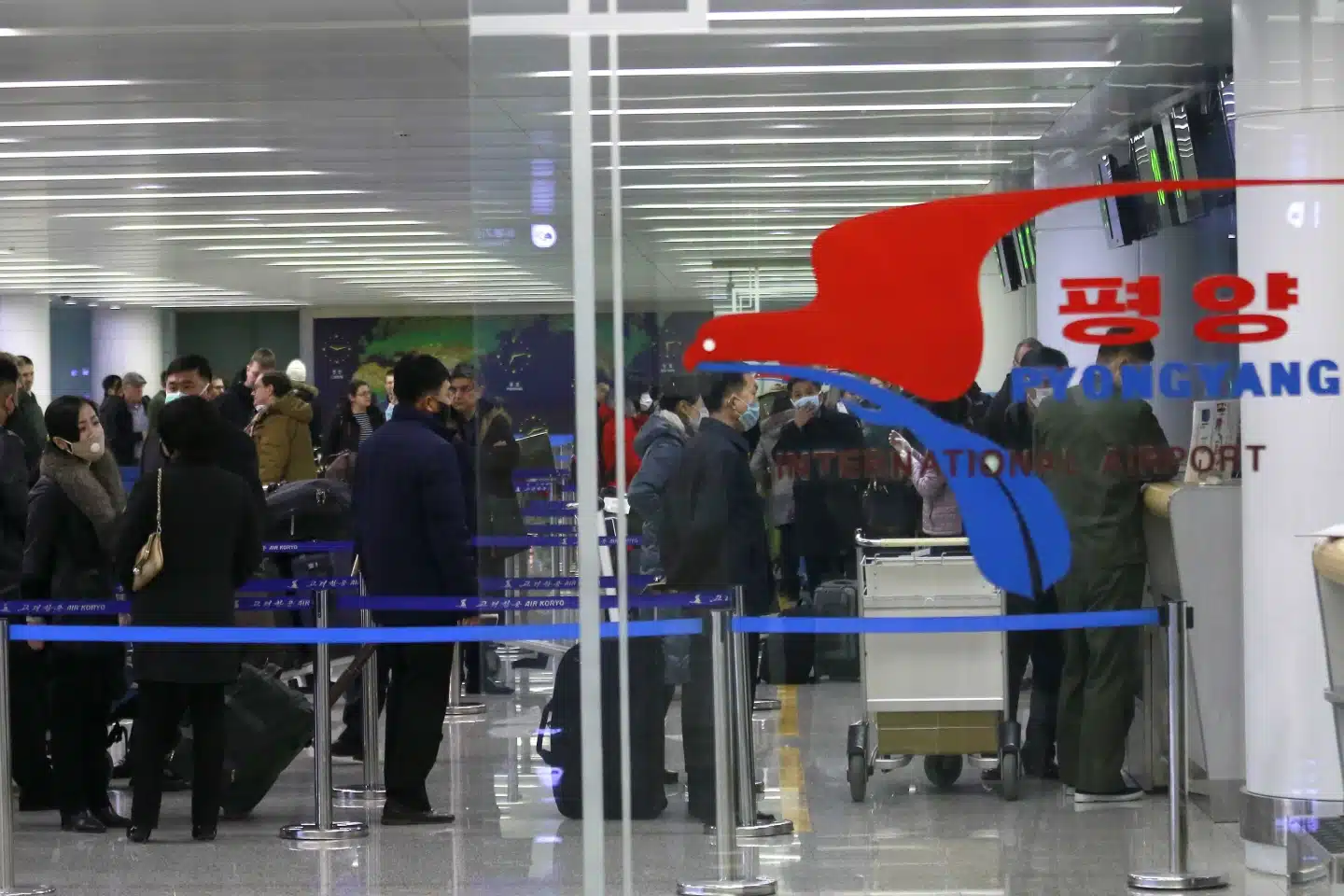News
North Korea Is Buying Chinese Surveillance Cameras In A Push To Tighten Control, Report Says

SEOUL, South Korea —According to a report released Tuesday, North Korea is installing surveillance cameras in schools and workplaces and collecting fingerprints, pictures, and other biometric information from its inhabitants as part of a technology-driven effort to further monitor its populace.
According to the researchers, the state’s increasing use of digital surveillance tools, which combine equipment imported from China with domestically developed software, threatens to erase many of the small spaces left for North Koreans to engage in private business activities, access foreign media, and secretly criticize their government.
North Korea Is Buying Chinese Surveillance Cameras In A Push To Tighten Control, Report Says
However, more electricity and better network access are necessary to advance the remote nation’s digital goals. According to the research released by the North Korea-focused website 38 North, these limitations, as well as a history of relying on human techniques to spy on its inhabitants, mean that digital surveillance is less widespread than in China.
The study’s findings are consistent with commonly held beliefs that North Korean leader Kim Jong Un is increasing attempts to tighten state control over its populace and foster loyalty to his rule.
The COVID-19 pandemic bolstered these efforts, as the North implemented severe border controls that were maintained for three years before a cautious reopening in 2023.
Walls and electronic monitoring tools put up along the border with China during the outbreak are most likely helping the government crack down on foreign influence and imported media. New legislation and recent reports of harsher punishments indicate this.
“After seeing that it is possible to close the border so tightly, I believe they are now eager to keep it that way,” said Martyn Williams, an analyst who co-authored the report with Natalia Slavney.
The pandemic might have contributed to increased surveillance across the nation, but Williams believes that the rapidly falling cost of surveillance technology has played a much larger role.
The analysis evaluated North Korean surveillance technologies using information from local and foreign media coverage and publicly disclosed research at North Korean universities and governmental institutions. The researchers also stated that they interviewed 40 North Korean escapees about the surveillance they faced while living in the country and, through unspecified partners, surveyed 100 current North Korean residents in 2023 via phone, text messages, and other encrypted communication methods to ensure their safety.
North Korea Is Buying Chinese Surveillance Cameras In A Push To Tighten Control, Report Says
According to state media sources, video surveillance is increasingly ubiquitous in schools, businesses, and airports. The cameras are primarily purchased from Chinese manufacturers, ranging from simple video feeds to more complex versions with features such as facial recognition.
Experts have cautioned that China is selling the technology behind its AI-powered spying to other countries.
According to North Korean state media, cameras are now installed in most schools in the capital, Pyongyang, and other major cities. These cameras allow school staff to remotely monitor classroom activities by panning and zooming in on individual pupils or teachers.
Cameras are also widely utilized in factories, government buildings, and other workplaces to boost security and prevent theft, and facial recognition systems have been used to record visitors to Pyongyang’s Sunan airport since 2019.
According to the report, North Korea has also been expanding its traffic camera network beyond Pyongyang since 2021, deploying them on main routes leading into and out of the city, most likely to automatically record license plates.
The government may still need to fully utilize the data it collects, and it currently lacks an extensive network of security cameras in streets and residential areas, possibly due to power outages and many security agents already monitoring public life in Pyongyang and elsewhere.
However, North Korea appears to anticipate a future of more widespread video surveillance. According to the article, North Korean colleges and research institutions have spent years developing technologies for movement detection, facial recognition, and license plate identification.
Meanwhile, the state is creating complete biometric profiles for its inhabitants. The most recent edition of North Korean national identity cards is in a smartcard format and requires residents to supply fingerprints, facial pictures, and, according to one account, a blood test.
“For North Koreans, the development of CCTV means increased surveillance of their lives, especially if the cameras have automatic detecting systems. Citizens participating in illegal activities would be particularly vulnerable if such cameras become more widely deployed, as facial recognition could monitor their movements around cities,” Williams and Slavney stated.
North Korea Is Buying Chinese Surveillance Cameras In A Push To Tighten Control, Report Says
“At present, North Koreans who get caught in activities such as smuggling or distributing illegally imported goods and foreign content can bribe local security services, but, unlike humans, security cameras cannot be bribed,” the officials stated.
According to Williams, the government will try to expand its monitoring network beyond large cities as infrastructure improves. He said exploiting massive volumes of video data would still be difficult, but North Korea may learn from the neighboring surveillance state.
The most significant challenge is the computational infrastructure required to process all this data in real time. Doing so on a national or even provincial scale is difficult if the network is to be truly widespread and include many cameras,” Williams added. The country would have to construct a tiny data center and ensure a steady electricity supply. Itina can influence it, as it has a much more Orwellian digital monitoring network despite being a rather free society in general.
SOURCE – (AP)